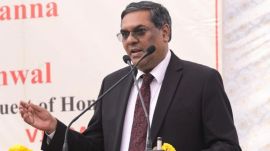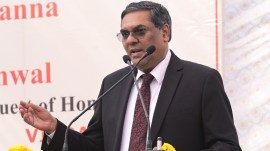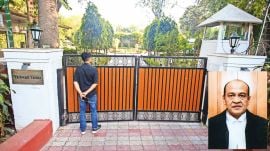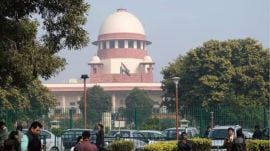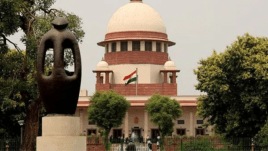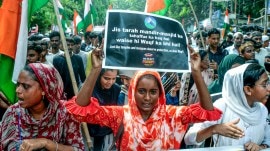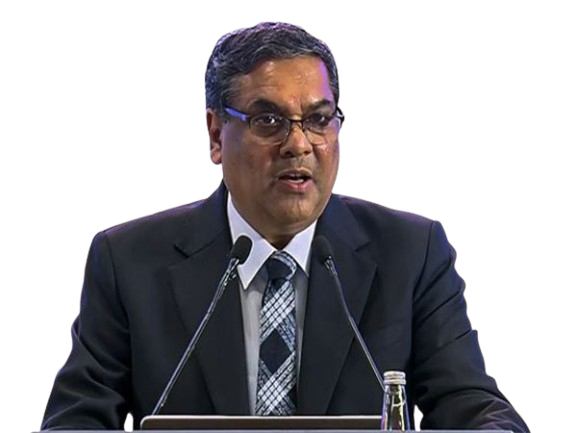
Justice Sanjiv Khanna
President Droupadi Murmu appointed Justice Sanjiv Khanna as the 51st Chief Justice of India. Succeeding CJI DY Chandrachud who retired on November 10, Justice Khanna took oath on November 11.
Justice Khanna will have a relatively short tenure of just six months — he is due to retire on March 13, 2025.
A graduate of Delhi University’s Campus Law Centre, he enrolled as an advocate in 1983 and primarily practised before the Delhi High Court. Before his elevation as judge of Delhi High Court in June 2005, he served as Senior Standing Counsel of the Income Tax Department and was also the standing counsel on civil matters for the Delhi government.
Justice Khanna carries an illustrious surname in the legal circles – his father Dev Raj Khanna was a judge of the Delhi High Court and his uncle Hans Raj Khanna was the most senior of the Supreme Court puisne judges who resigned after he was passed over for chief justiceship during the Emergency.
In the last few months, Justice Khanna has in fact been in the same courtroom as his uncle – Courtroom Number 2, where a life-size portrait of the senior Justice Khanna hangs.
Known to be a very reserved and private person, Justice Khanna has spent his nearly two-decade long judicial career in Delhi. In fact, the Chief Justiceship will be his first big administrative role as a judge. He is currently the Executive Chairman of the National Legal Services Authority.
Justice Khanna was elevated to the Supreme Court in January 2019. Despite not having served as Chief Justice of a High Court, he was elevated over other senior judges in the Delhi High Court. The Supreme Court Collegium had in fact picked Justices Rajendra Menon and Pradeep Nandrajog for appointment to the Supreme Court. However, those two names were not sent to the government and subsequently, Justice Khanna was elevated from the Delhi High Court.
In his nearly six-year tenure as Supreme Court judge, Justice Khanna has authored several key rulings. He was part of the five-judge Constitution Bench that in February this year struck down the Electoral Bond Scheme as unconstitutional, and in 2023 was part of the bench that upheld the abrogation of Article 370 of the Constitution. In 2023, Justice Khanna authored a key Constitutional Bench ruling that held that the Supreme Court has the power to directly grant divorce under Article 142 of the Constitution on the grounds of “irretrievable breakdown of marriage”
JUSTICE SANJIV KHANNA NEWS
Justice Khanna appears before joint poll panel, flags vast powers given to EC in Bill
August 20, 2025 7:56 am
He is also learnt to have accepted the authority of the Election Commission in conduct of polls, but raised questions on the unfettered powers given to the EC on postponement of elections in the Bill.
Justice Sanjiv Khanna — a legacy of fairness and integrity
May 16, 2025 12:28 pm
CJI Khanna gave interim orders to protect constitutional rights, especially those of minorities
Public trust in judiciary has to be earned through members of bar and bench, says CJI Sanjiv Khanna as he retires
May 14, 2025 7:20 am
After the ceremonial bench sitting, Chief Justice Sanjiv Khanna said he “will not accept any post-retirement post”, and said he was confident that his successor, Justice B R Gavai, “will be an excellent Chief Justice.”
Cash at home: Panel found ‘credence’ in allegations, Justice Yashwant Varma gets nudge to quit
May 07, 2025 7:39 am
Sources said CJI Khanna also informally discussed the report’s conclusion with his colleagues over tea before the Court proceedings began on May 5.
Supreme Court publishes details of recommendations made by Collegium for HCs
May 06, 2025 2:48 am
The decision to disclose additional data on appointments comes just a month after all 31 SC judges resolved to publicly declare their assets
No consensus in Modi-Rahul-CJI meet, CBI Director Praveen Sood may get one-year extension
May 06, 2025 8:36 am
No consensus could be reached on any of the suggested candidates, following which the members agreed to extend Sood’s tenure by a year. The meeting began around 6:45 pm and concluded by 7:30 pm.
SC Collegium recommends transfer of 7 high court judges, including 4 from Karnataka
April 21, 2025 12:35 pm
The Supreme Court Collegium said the move aimed to “infuse inclusivity and diversity at the level of High Courts and to strengthen the quality of administration of justice.”
Election rules row: SC allows 3 weeks to EC to respond to plea of Jairam Ramesh and others
April 17, 2025 2:07 pm
The new amendment is stated to have modified the provision to "all other papers as specified in these rules relating to the election shall be open to public inspection".
CJI-led bench to hear petitions challenging new Waqf Act today
April 16, 2025 10:19 am
Supreme Court waqf Act Hearing: The petitions argue that waqfs form an integral aspect of the practice of Islam and are therefore entitled to constitutional protection under the Constitution
Best of Express




